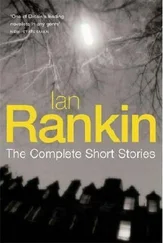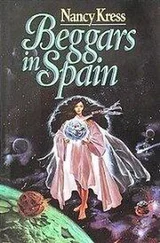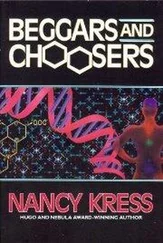Perhaps that was indeed the case, except when Yeghen found himself before a judge in correctional court. That was the weak point. He could not be defended. The poor lawyers assigned to his defense lost the little dignity they had and became nearly speechless from shock. They stammered a vague plea without ever looking at him. What a bunch of eunuchs! He despised them more than anything. With the exception of one, whom he would never forget. This one — a man of unprecedented courage, or else simply a humorist — had found a way of comparing Yeghen’s face to that of unrecognized genius. He spoke for an hour. The judge hadn’t laughed; he only seemed overwhelmed, unable to understand. The lawyer’s harangue ended in a silence of stupefaction and incredulity. The judge couldn’t believe his ears; he looked around with a befuddled expression as if coming out of a dream. Finally he got hold of himself and pronounced sentence.
That time the sentence was stiffer than usual: eight months. But Yeghen was happy; he’d had a devil of a good time.
These periods in prison weren’t at all disagreeable for someone like him, able to adapt to circumstances. Instead, they were a kind of repose after the constant fatigue of his nomadic life. Each time he went back in, he reclaimed his position as bookkeeper in the penitentiary administration. This job, which was his by an unspoken assumption, allowed him a certain freedom of movement, and he cut a figure as a great administrator. His talents did not go unrecognized in high places — he was heartily congratulated. All this was grotesque, but it allowed Yeghen to enjoy himself enormously. As soon as he arrived, the odious building, constructed to dishearten men, resounded with tumultuous joy. His jokes and humorous ideas delighted his companions, for the most part inclined to the sadness inherent in their condition. Even the jailers lost their habitual surliness, allowing themselves a certain affability. The prison warden — a passionate admirer of Yeghen’s poems — loved to converse with him; he received him in his office with the deference due a government minister. So, for Yeghen, life in prison continued as on the outside. In one sense, it was even better: he had no material worries. He was housed, fed, and surrounded by convicts, each one more outrageous than the next, bursting with savory stories that were as funny as they were violent. Freedom was an abstract notion and a bourgeois prejudice. You could never make Yeghen believe he wasn’t free. As for drugs, he had nothing to complain about. Hashish circulated inside the prison walls with the same facility as in town; one could procure it in a thousand ways provided one had money.
His reputation as a poet had given him immense prestige among his illiterate companions. He was the one who “married”—what a mockery! — the convict couples. In truth, his ugliness preserved him from a real danger: one would have to be blind to want to sodomize him. Fortunately there were no blind men in prison.
Again he tried to penetrate the mystery of his mother’s face hidden in the shadows. Everything grew confused before his myopic gaze. Should he move the lamp aside? The circle of light created an impassable desert between them. Groaning like a sick child, he fidgeted on his chair. There was no change of position on the other side of the table; his mother didn’t even tremble.
“Mother!” The word came out almost against his will.
She remained silent, as if his call — which was almost a cry — couldn’t reach her in the world of suffering and resignation in which she was foundering. A poor old woman doing a humble but honest job, she continued to mend the shirt. Her whole attitude strained to prove that there were honest trades. And he should profit from her example. Her way of teaching him moral lessons was truly exasperating. What did she take him for?
“Mother!”
Her fingers stopped abruptly, the needle half stuck in the shirt. A silence hung over the room for what seemed an eternity. His mother uttered not a word, as if she were afraid to break the spell by speaking. Finally, resigned to the worst, she asked, “What is it?”
“Tell me, Mother, was I handsome when I was little?”
The malice of that question! He knew he was causing her a horrible pang of conscience. What would she do? Begin to cry, or answer? Yeghen could only imagine the panic that must have possessed her. He could still see only her withered hands, now resting on the edge of the table. Wanting to fluster her even more, he moved his face into the lamplight, so she could better judge this mask of human derision. Now she couldn’t equivocate; he had her. He wore a mischievous smile that bared his long, rotten teeth, giving his face a monstrous look.
Truly, there was nothing there to gladden a mother’s heart.
Seeming to rouse herself from a thousand-year torpor, she looked at her son with love and pity. A thirty-five-year-old man who was as lost in life as a child. More unaware, more vulnerable even than a child. She had a moment’s hesitation that Yeghen savored deliciously. “She must be having a terrible time,” he thought to himself. Deep down he was certain of her answer.
“Well, Mother?”
“Yes, you were handsome,” she said.
“It’s not possible! How could I have changed so much?”
“You haven’t changed,” said his mother.
She must be crazy. Yeghen was tempted to go look at himself in a mirror. For a moment he believed that a miracle had transformed his face. But no, it was simpler than that. He should have known that in its mother’s eyes a monkey has the grace of a gazelle. No reason to delude himself. It wasn’t even pity; it was an answer torn from maternal fiber. He had the impression she was happy with her answer and that she sincerely believed it.
“And my father?”
“What about your father?”
“Was he handsome?”
“Your father was an honorable man.”
“What a joke!”
Yeghen quivered with joy. His father! How many times had she repeated that his father was an honorable man! And yet it was his fault that they had been reduced to poverty. Heir to a great family of landowners, he had squandered his immense fortune in gambling and fabulous orgies. He died leaving only debts. Yeghen had been very young at the time; the death of his father, the ruin, had hardly touched him. He had learned of his father’s incredible escapades from gossip. A man who needed at least three women in bed to feel comfortable. A veritable Oriental potentate.
His mother had never talked to Yeghen about him; she considered it an indecent subject: one didn’t judge one’s husband. She must have believed that suffering at the hands of one’s husband was an enviable, ineluctable fate. Yeghen had never heard her pronounce a single word of reproach against his late father; she continued to believe that he was an honorable man. “Riches excuse everything,” he thought. “My antics displease her because they bear the stain of poverty.” The poor did not have the right to misbehave. For her, this axiom constituted the only truth on earth.
To survive, she was now reduced to this humiliating work, mending clothes for some bourgeois family who took pity on her misfortune. All these years of bitter fighting with this useless son marked by a frightful destiny had not changed at all her opinion of the unspeakable behavior of her husband. Hadn’t he been a rich, respected man? That excused everything. Such fidelity to the privileged class was unthinkable for Yeghen, but it was the only thing that still kept her alive. The memory of her dead husband had no aim but to preserve this respect owed to wealth.
In this basement room with its defective tiling, moisture was trickling down the walls. A musty smell of bourgeois security persisted despite the slow decay of the furniture, the perfidious, drastic misery. Among the incongruous objects bathed in shadow, a skillfully carved wooden buffet that she had managed to save from disaster stood out, enthroned against the wall. It was this buffet that created the equivocal atmosphere in the room that so oppressed Yeghen. He would have preferred to sleep in the street rather than live in this miserable flat oozing respectability. It seemed to him that the buffet — a shapeless bulk in the shadows — was threatening him with its utter contempt. Yeghen shivered. It was cold, and there was nothing to heat this glacial cavern but the little spirit lamp on which soup was cooking. He felt sadness sweep through him — just what he dreaded most when he came to visit his mother. She was skilled in the art of distilling sadness; she spun misery like a spider its web.
Читать дальше












